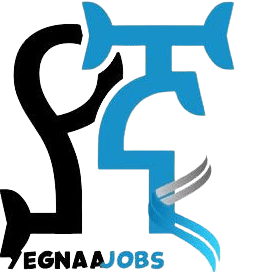What you have to know is First impressions matter especially at a job interview. What you wear can say a lot about you before you even speak. In Ethiopia, dressing appropriately for an interview shows respect, professionalism, and seriousness about the opportunity.
But with so many industries and dress styles out there, it can be hard to know what’s right, and that’s what makes me prepare this a clean info about what to dress and not. This guide will help you choose the perfect outfit based on local expectations, the type of job, and the workplace culture.
Why Dressing Well Matters
When we talk about dressing don’t get me wrong im not saying
clothing need to be expensive or brand-new, it is just enough to be clean, neat, and appropriate for the position you’re applying for. Employers are more likely to trust and respect candidates who present themselves professionally.
In Ethiopia, traditional values still influence the workplace, and modest, well put together outfits are often seen as a sign of maturity and respect.
General Rules for Interview Outfits {for Ethiopia}
Here are some basic rules to keep in mind for both men and women ->
- Dress modestly
Avoid revealing or flashy clothes. It just have to be lightweight. - Kept it clean and neat
Make sure your outfit is ironed and free of stains or wrinkles. - Avoid heavy perfumes or colognes
Go for a clean, fresh scent or none at all. - Limit accessories
At this part all people will fail — please keep jewelry and accessories simple and professional. - Pay attention to grooming
Clean shoes, trimmed nails, neat hair, and good hygiene go a long way.
For Men
Recommended Outfit
- Button-down shirt
For me, preferred colors are white or light colors are best - Dress pants or chinos
- Closed shoes preferably leather or clean, formal shoes
(It’s not recommended to wear shoes we use for sports, etc.) - Optional tie or blazer
If the job is in an office or formal setting
Main Clothing to Avoid
- T-shirts, jeans, sandals, or sneakers
- Loud patterns or bright, distracting colors
- Uncombed hair or unshaven face (unless a beard is well-kept)
Tip -> If you don’t have a full suit, a clean shirt tucked into well fitting trousers can still look professional.
For Women
Recommended Outfits
- Blouse or modest top
(Avoid anything too low-cut or tight because it’s a place of work) - Skirt or trousers
Knee-length or longer for skirts - Blazer or cardigan
Additionally optional, depending on formality - Closed-toe flats or low heels
Wearing Style to Avoid ->
- Mini skirts, sleeveless tops, or see through fabrics
- Bright makeup or flashy jewelry
- High heels that make it difficult to walk confidently
As a bonus ->
If you prefer wearing Ethiopian traditional clothing, choose something simple, modern, and professional-looking. Some employers may even appreciate it, especially in cultural or social sector roles — it’s preferable Ethiopian traditional clothing.
Dressing by Job Type
Office Jobs
Like banks, NGOs, government
Dress more formally. Men should consider a shirt and tie or blazer. Women should go with a blouse and skirt or trousers.
Creative Fields
Like media, design, marketing
You can be a little more relaxed and stylish but still neat. Show some personality, but keep it professional.
Tech or Startup Roles
Smart-casual is often enough — a clean polo shirt or button-up with trousers can work well.
Fieldwork or NGO Roles
Keep it simple and practical. You don’t need to wear a full suit, but you should still look tidy and respectful.
And Final Words
You don’t need to spend a lot of money to dress well for an interview in Ethiopia because it’s just wasting of money. The key is to look clean, respectful, and confident. Choose clothes that fit well, are appropriate for the role, and make you feel comfortable — because confidence shows.
Thanks for reading

